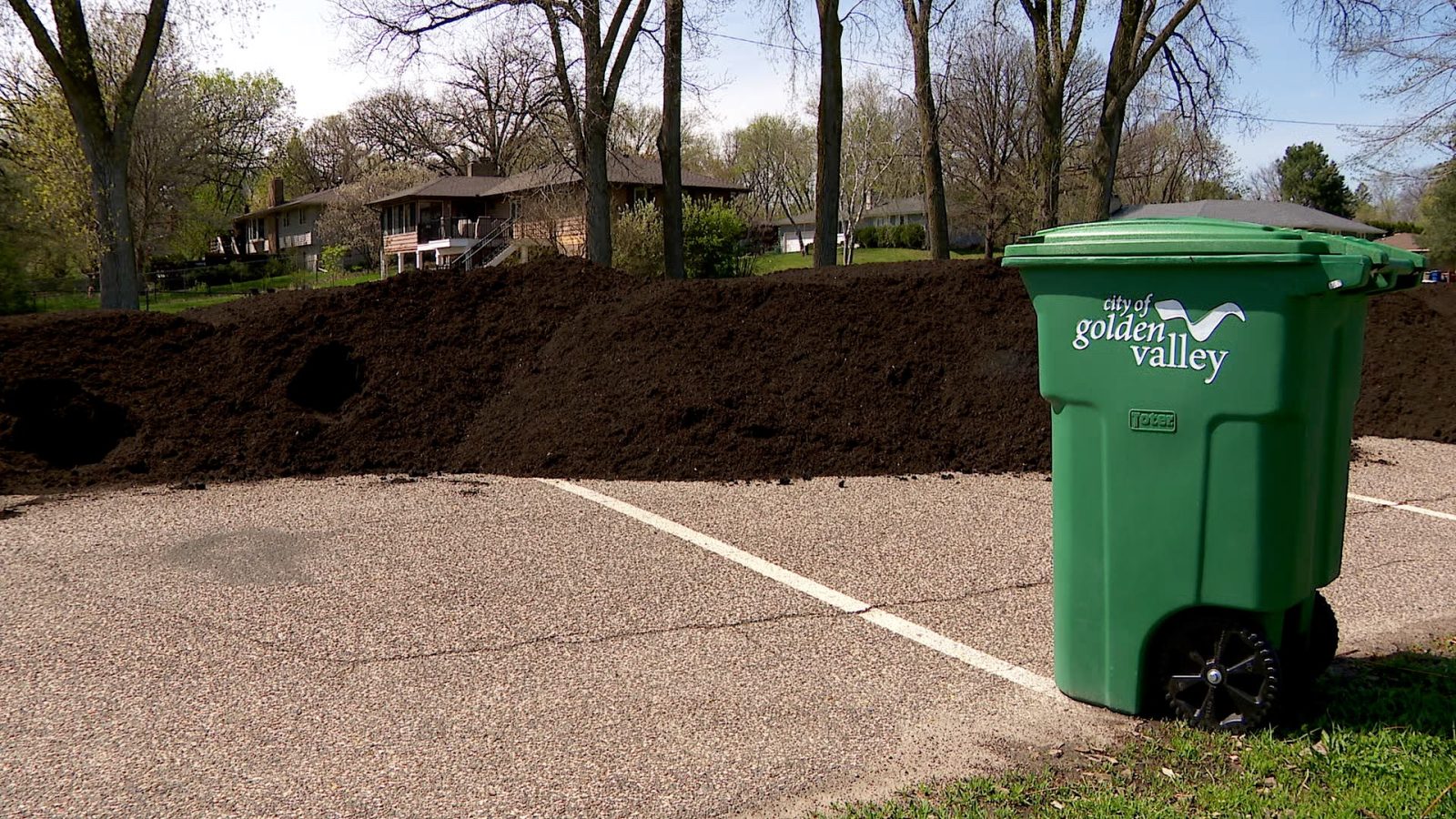Golden Valley Continues Efforts With Residents and With Park Improvements to Improve the Environment
On a sunny spring afternoon, Eric Eckman took an opportunity to briefly take over a first-grade class from nearby School of Engineering and Arts as the students lounged on rocks along a man-made stream at Wildwood Park.

Improvements to water containment at Wildwood Park in Golden Valley is just one example of what the city is doing to help improve the environment.
“I’m taking over your class!” he said, and the teacher assured him it was okay.
Eckman, the City of Golden Valley’s environmental resources supervisor, talked to the kids about the improvements the city recently made to the park’s water retention areas, including the stream, which flows in a controlled manner out of a basin where storm water runoff goes through an iron-enhanced sand filter and then flows down a gentle grade.
“Instead of flooding homes (across the street) and water going into homes, we’re hoping to divert water away to other areas of the park, so we’re storing water here,” Eckman told the students.
He also explained why there were new trees planted with fencing securing them and fences all around with brightly-colored ribbons affixed to the wires, glinting in the sun.
“That’s basically fencing to keep out geese,” Eckman explained. “The idea is we don’t want them to come in and eat up all the little seedlings and plantings.”
The park–and the lessons it can help teach–are just one example of efforts large and small that Eckman said he and other city leaders have undertaken to try to stem the effects of climate change and to encourage better environmental stewardship among residents.
He pointed to the popularity of No Mow May, which is in its second year in Golden Valley. The idea is for homeowners to forego mowing to let pollinators emerge from underground after the winter and to allow grass, perennials, and other plants to grow in to protect those pollinators.
“This is a good first step, but what else can (we) do to kind of promote pollinator habitat and wildlife habitat?” said Eckman. “It kind of makes you take a proactive, holistic look at your yard and see where else can I maybe create a habitat or a pollinator garden. Not mowing for a month is helpful, a good start, but there’s other things you can do that are beneficial.”
Eckman said the Golden Valley Garden Club is having its plant sale on May 18 and will offer pesticide- and jumping worm-free plants for homeowners to use to help create a larger footprint for conservation in the city.
“We have green corridors and professionally-managed native vegetation areas where we have habitat in place for wildlife, and it connects those private properties to those public corridors,” said Eckland. “It kind of creates a pesticide-free zone. I think that’s the goal: a pesticide-free zone for people, pets, and wildlife.”
He also mentioned the city’s first-ever tree sale, which used a lottery system to allow residents a chance to purchase brand-new trees to plant in their yards–at affordable prices.
“We have more extreme weather. That includes heavy rains and flooding, but that also includes periods of drought, which we just had a few seasons and drought,” said Eckland. “So we’ve noticed that because of the climate-fueled drought and because of some of the pests and diseases, like emerald ash borer, we’re losing thousands of trees in the community. And that’s because of climate change. One of the best things we can do is to plant trees.”

Compost–made from recycled organic material–is available to all Golden Valley residents at Hampshire Park.
The last effort Eckman mentioned was the city’s organics recycling program, now in its third year with more than 40 percent of residents participating. The city’s hauler, Republic Services, will take away curbside containers with organic materials inside, and send them to a processor.
“That’s all processed into a marketable and nutrient-rich soil or compost material,” he said. “That can be used in your yards and gardens, and it’s fantastic quality.”
A load of that compost was dumped this week at Hampshire Park, and residents are encouraged to come and get some of it, on a first-come, first-served basis, for use in their yards and gardens.


